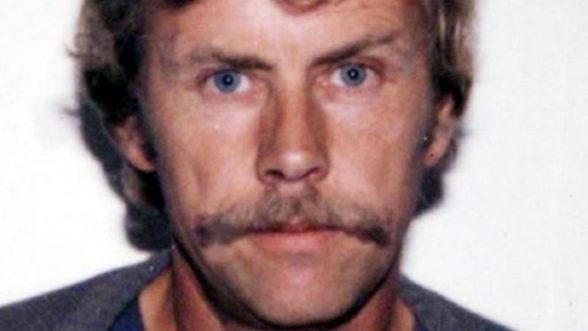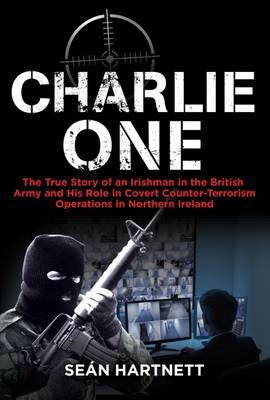
David Caldwell died after a lunchbox he picked up exploded at a TA base in Derry he was refurbishing. A former soldier claims his Real IRA killers had been under surveillance in the days leading up to the attack but followed the wrong car to Derry
THE family of a construction worker killed by the Real IRA in Derry have called for a fresh investigation into his death.
David Caldwell died after picking up a lunchbox packed with explosives at a TA base in the Waterside in 2002.
He had worked for the UDR but had left in 1985 to work in the construction industry.
Mr Caldwell, a 51-year-old father of four, had been involved in refurbishing facilities at Caw camp.
He was critically injured in the blast and later died at Altnagelvin Hospital.
In recent weeks, a former solider has claimed in a recent book that the bombers were under surveillance before the attack.
Cork-born Sean Hartnett claims thee Real IRA unit responsible for killing was under close surveillance in the days leading up to the attack.
In his book Hartnett reveals that in the days leading up to the deadly attack several key members of the Real IRA unit were being monitored by his unit.
He also reveals the extraordinary lengths authorities were willing to go to monitor the movements of republican suspects.
Despite near blanket surveillance, members of the bomb team managed to give undercover British soldiers the slip and transport the deadly device from the Republic to its target.
Hartnett reveals previously unknown details about the attack and how authorities came within a whisker of stopping it.
The account also reveals some of the tactics authorities go to in their undercover war with republicans.
He reveals that a key suspect based in Strabane, who had links to the Provisional IRA, was given special ‘Charlie One’ status by undercover soldiers.
The term Charlie One – which gives the book its title – was used to describe the primary surveillance target during undercover operations.
Hartnett reveals that the operation centred on a Strabane-Derry based Real IRA cell and a white Vauxhall Cavalier and was based on information gathered using electronic intelligence techniques.
He said that the military were aware that the car was to be used to transport a bomb, however the “where and when were unknown”.
He reveals how his unit removed the car from the front of a suspect’s house in Derry before fitting a tracking device and later returning the vehicle.
“At about 0300, with the streets of Derry entirely dead, in one smooth, flowing movement of operators dressed in normal civilian clothing, and communicating with just clicks on the radio network, one white Vauxhall Cavalier parked on a driveway in Derry was unlocked, opened and rolled silently away while another was rolled into its place.
“Within an hour the dance was repeated and we all went home to bed.”
Hartnett reveals that the suspects were tailed 24 hours a day by British soldiers working in shifts.
Often the number plates and vehicles had to be changed over concerns they had fallen under suspicion form republicans, who often deployed their own counter-surveillance measures.
According the author the suspect car was even transported across the border in a bid to evade detection.
Hartnett says that two days before Mr Caldwell was killed the white Cavalier returned to Derry before meeting with another vehicle.
He says the cars parked boot to boot before driving in different directions with Charlie One travelling in the other vehicle.
Forced to make a crucial decision the officer in charge of the operation decided to continue monitoring the suspect car because “all the intelligence told us the white cavalier would be carrying the intelligence”.
 That decision proved fatal for Mr Caldwell who died two days later.
That decision proved fatal for Mr Caldwell who died two days later.
The white Cavalier was later found burnt out in Co Louth with the tracking device still working.
Hartnett admits that his unit was “wrong footed” by those responsible for killing him.
He hopes the fresh details of the killing will bring comfort to Mr Caldwell’s family.
“Until now, no one had any knowledge of North Det’s involvement in the incident. David Caldwell’s daughter, Gillian McFaul, has been looking for answers ever since that day,” he wrote.
“I hope this provides some.”
Mr Caldwell’s partner Mavis McFaul and daughter Gillian told the BBC that they needed closure.
“It’s re-opened old wounds again, you don’t know if it’s true or not,” Gillian McFaul said.
“We’re angry and hurt, why didn’t they come forward earlier to say? It would be like closure for us.”
Members of the McFaul family met First Minister Arlene Foster and the Ulster Unionist leader Mike Nesbitt at Stormont on Monday.
Mavis McFaul said it was important that questions raised in the new book were answered.
“It is pretty hurtful that some man knows details about Davy’s death and couldn’t come forward before this.
“There’s evidence the police have (more detail) and they’re not releasing it until we get another inquest into the murder.
“I know there’s a lot of people who lost their lives, like the Claudy bomb victims and things like that, but we can’t go on.
“Thirty years down the line? No, we couldn’t do it. We just want an end to it.” she said.
Tags:




